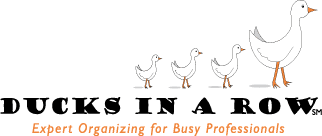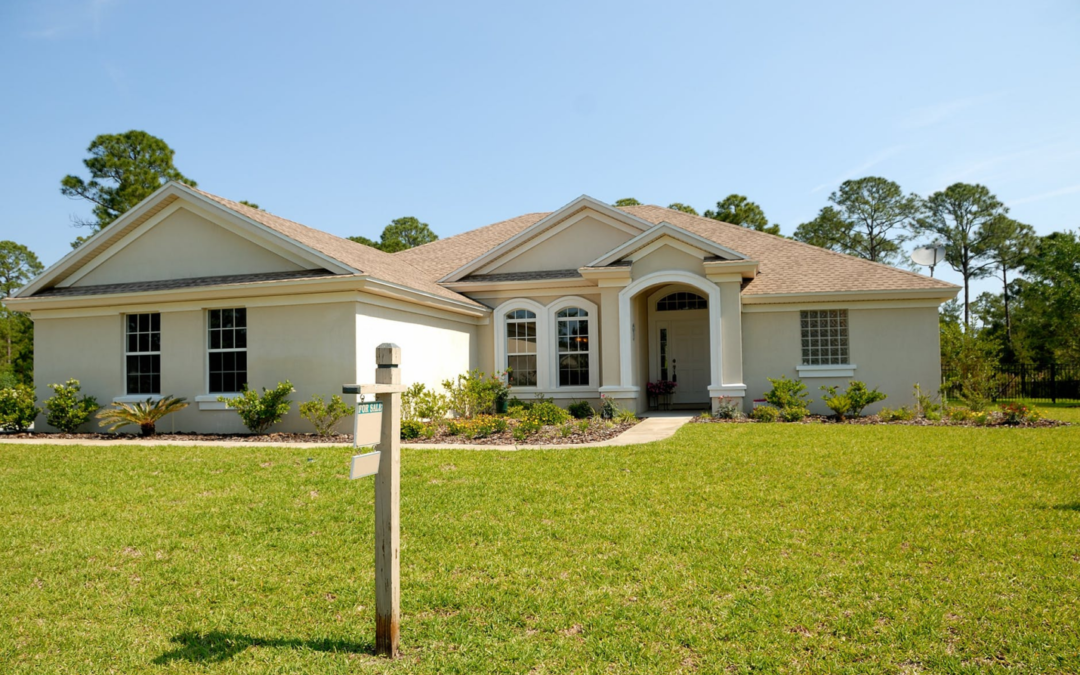If you are moving to a new home, you may be wondering what to do with your old one. While selling may be the first option that comes to mind, turning your home into a rental may be more profitable. In order to decide what makes more sense for your property and your future investments, you need to know these pros and cons of owning a rental home.
Ducks In a Row offers our clients expert home and office organization and move management solutions. Fill out this free consultation form today!
Managing a Rental On Your Own Can Be Tricky…
There’s a lot of work that goes into managing a rental property. Often, one of the hardest jobs is actually getting your property filled with reliable tenants, but providing timely responses to maintenance issues can be a challenge for homeowners as well. All these tasks can make managing a rental property a part-time job, so you need to have time in your schedule to attend to them. If you are trying to manage your home from afar, know that the tasks get even trickier.
But Hiring a Property Manager Can Make It Simple
The small financial reward of self-managing your rental property is often not worth the risk to your quality of life. So, if you have a busy schedule or just can’t afford additional stress in your life, hire a local property manager. A reputable property manager will help you protect that additional income by doing extensive tenant background checks to reduce the risk of late or unpaid rent.
Buying a Second, or Third, Home Can Be More Difficult…
It’s important to understand how properties are classified. It goes without saying that the home you spend the most time in is your primary residence, and homes you intend to rent only are considered investment properties. The tax and finance rules around each type of property are quite different, so make sure you understand how you are impacted. Also, if you need a mortgage for rental properties, you may need a bigger down payment or better credit than if you are financing a primary residence.
But That Rental Income Can Help Boost Your Savings
Securing financing for a rental property can be difficult, but once things are settled and you have a renter, you will be in good shape to strengthen your savings. Additional income is one of the reasons people choose to rent out homes rather than sell them. You can even use that additional income to pad your retirement savings. Just be aware that this savings strategy tends to work best if you can begin investing in your 30s, rather than closer to retirement.
You May End Up Paying for Multiple Mortgages…
You have the financing and renters secured, which means both your mortgages are likely being paid. What if, however, a tenant needs to move out before the end of the lease? Or, what happens if it takes time to find another tenant? Working with a property manager will help mitigate these circumstances, but they can still impact you at some point. That’s why it’s wise to start an emergency fund right away, if you have not already. Having three to six months of living expenses set aside can make paying two mortgages, or taking care of rental repairs, easier.
But You Can Still Turn a Profit With Rental Payments
Even with all the cons of owning a rental, the pros of making a profit are still very real. To make that profit, you definitely want to make sure your first rental investment is in a lucrative area that will continue to attract new tenants. For example, military bases and college campuses can make certain locations more profitable than others. You also want to think about any possible developments that could drive down the appeal or value of your property, to protect profits.
Many investment property owners prefer to set themselves up as a limited liability company. Not only can they gain tax advantages, but they can lower the risk of potential litigation as well. Instead of hiring an attorney for this process, consider using a formation service to set up your Massachusetts LLC to save on fees.
Whether you’re leaning more toward selling or renting your home, you should know there can be pros and cons to both. Owning a rental can be a good way to boost your finances and savings, but it does take some extra effort. So work with a trusted realtor to decide whether renting your home is the right real estate step for you.
Photo Credit: Pexels

